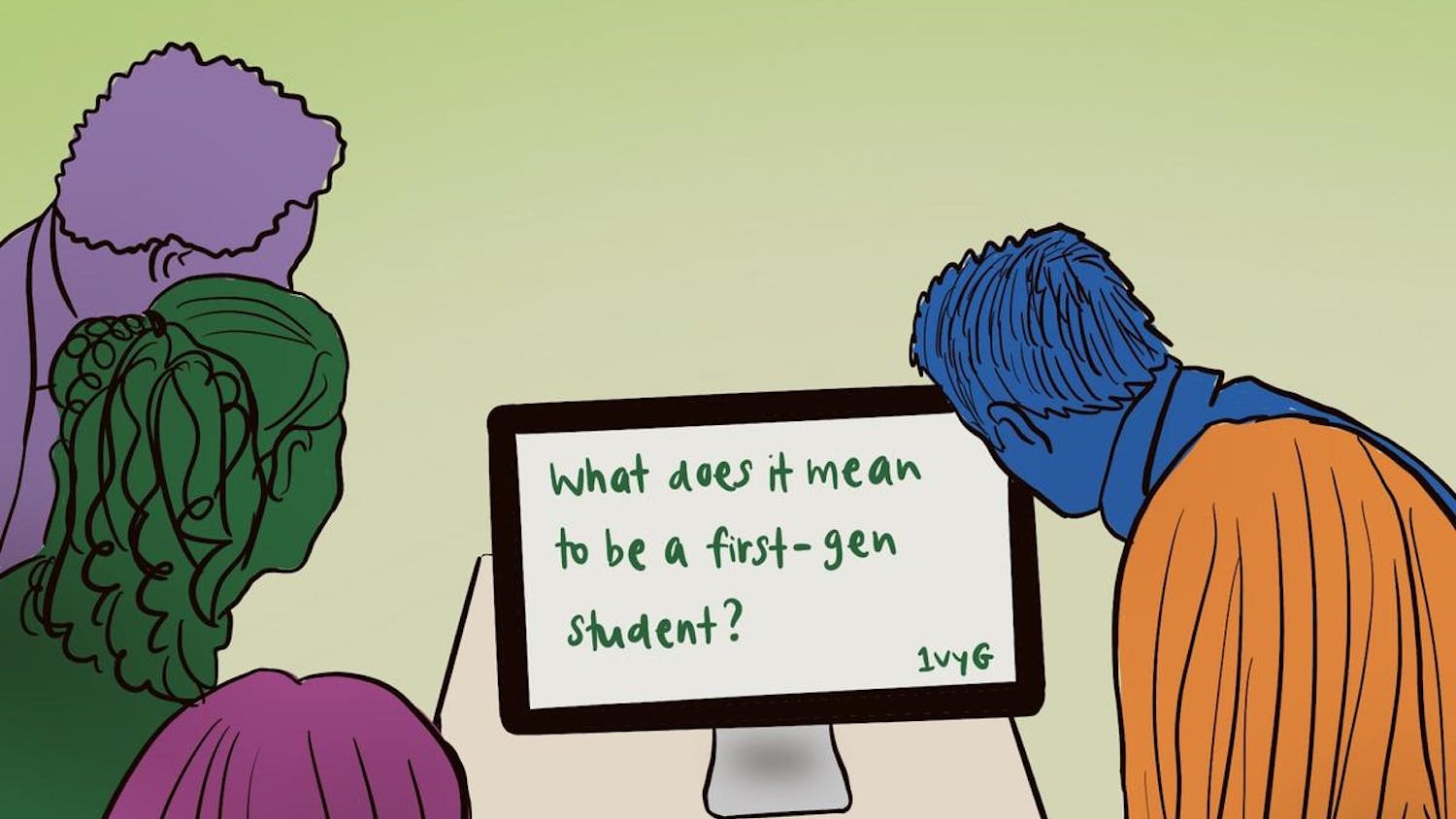Palestinians will remain in a “situation of captivity and enslavement” if Israel does not move toward a two-state solution, said Hanan Ashrawi, a member of the Palestine Liberation Organization executive committee, to a half-filled Salomon 101 Wednesday.
Ashrawi’s lecture — entitled “Oslo: Process versus Peace” — was sponsored by the Department of Middle East Studies in commemoration of the 20th anniversary of the 1993 Oslo Peace Accords signed between Israel and Palestine.
The accords marked the first time the governments of Israel and Palestine recognized each other as legitimate entities. Israel promised to withdraw from Jericho and Gaza, and Palestine called for an end to acts of terror against Israel.
Twenty years later, the number of Israeli settlers on the West Bank has grown, and divisions similar to “an apartheid system” have emerged, Ashrawi said.
Ashrawi attributed what she called the Oslo Accords’ failure to sustain peace to five fundamental flaws in the pact.
The agreement was signed in secret, preventing the people of Israel and Palestine as well as the international community from knowing its terms, Ashrawi said. Both sides agreed to the accord without consulting any legal advisors, she added.
Ashrawi also faulted the pact for focusing only on “peripheral issues.” The two sides took an “administrative approach, not a territorial approach,” with negotiators attempting to improve Palestinians’ quality of life under Israeli authority and ignoring Palestinians’ desire for a separate state, Ashrawi said.
Another key problem with the accords was the division of Palestinian communities, causing a refugee situation where many were placed “in limbo” in Jerusalem under Israeli control, Ashrawi said.
The accords laid out an overly gradual peace process, Ashrawi said, linking the agreement’s long timeline to ongoing land and resource theft by the Israeli government. Without firm deadlines, “temporary became permanent” for oppressive conditions, Ashrawi said.
“(Palestinians are) the ones who launched the peace process,” Ashrawi said. A lifelong diplomat and human rights activist who claimed to have never lost an election, Ashrawi stressed that her side is ready for an end to conflict. “We will make peace, we want to make peace, but it must be peace with justice,” she said.
But Palestinians must work on the “internal improvement” of their own government to prevent losing further control of the region’s future, Ashrawi said.
From the PLO’s standpoint, peace cannot be obtained without the “devolution of occupation and evolution of statehood,” Ashrawi said. “One side has all the power and the other has none, except for moral and legal power.”
In order to overcome these challenges, the international community must help, Ashrawi said, criticizing the United States’ role in the conflict. She blamed Secretary of State John Kerry for what she called an ineffective new round of peace talks that resemble the Oslo Accords. Kerry should not be holding negotiations between Israel and Palestine in secret, Ashrawi said, because any resolution will not be legitimate without popular support.
Palestine prefers a “multilateral approach” with multiple nations involved, rather than a U.S.-driven process, Ashrawi said, calling U.S. diplomats “lawyers for Israel, instead of intermediaries” between the two sides.
The international community has placed unreasonable demands on Palestinians to fix regional security concerns before they can gain sovereignty, Ashrawi said. “Palestinians have to prove that we are worthy, that we deserve a state,” she said. She also blamed communications with Israel, adding that Israeli negotiators want “unconditional talks” only after their own conditions — including complete control over Jerusalem — are met.
Palestinians want a return to the 1967 borders, with Jerusalem as the capital of Palestine, Ashrawi said.
Ashrawi responded to an audience member’s question about the potential integration of both sides into one democratic state by saying a one-state solution would not work because Palestinians would still face discrimination by Israeli officials and subsequently emigrate.
Assessing Americans’ exposure to the conflict’s current status, Ashrawi praised social media for establishing a way for the U.S. public to gain information outside of what she called “biased” coverage from mainstream news outlets.
ADVERTISEMENT




